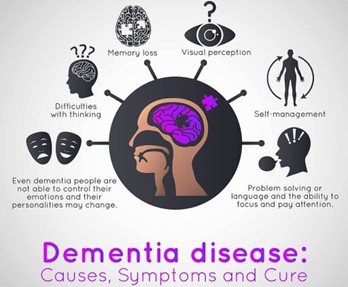The Practical Nurse (PN) is caring for a client with dementia and memory loss. Which of the following communication techniques would be most effective? (Select all that apply)
Avoid long explanations
Ask one question at a time
Use short sentences
Talk loudly
Correct Answer : A
Choice A reason: This is correct because it shows that the PN is respectful and sensitive to the client’s cognitive impairment. Long explanations can confuse and overwhelm the client, who may have difficulty processing and retaining information.
Choice B reason: This is correct because it shows that the PN is respectful and sensitive to the client’s cognitive impairment. Asking one question at a time can help the client focus and respond more easily, without feeling pressured or frustrated.
Choice C reason: This is correct because it shows that the PN is respectful and sensitive to the client’s cognitive impairment. Using short sentences can help the client understand and remember the message, without being distracted or confused by unnecessary words.
Choice D reason: This is incorrect because it shows that the PN is rude and disrespectful to the client’s hearing ability. Talking loudly can make the client feel annoyed or threatened, and may not improve communication if the client has hearing loss. The PN should talk in a normal tone and check for understanding.

Nursing Test Bank
Naxlex Comprehensive Predictor Exams
Related Questions
Correct Answer is ["B"]
Explanation
Choice A reason: This is incorrect because it shows a lack of empathy and priority for the client who spilled coffee. The nurse should not delay providing care for a client who may have suffered a burn.
Choice B reason: This is correct because it shows that the nurse prioritizes the safety and comfort of the client who spilled coffee. The nurse should stop the tube feeding and assess for burns, which can be a serious complication.
Choice C reason: This is incorrect because it does not address the potential burn injury of the client who spilled coffee. The nurse should not focus on replacing the tray before assessing for burns.
Choice D reason: This is correct because it shows that the nurse delegates appropriately and ensures that both clients receive timely care. The nurse should stop the tube feeding and request another nurse to assist the client who spilled coffee.
Correct Answer is D
Explanation
Choice A reason: Counteract shyness in the client is not the major effect of maintaining eye contact for 2 to 6 seconds during communication. Eye contact is a nonverbal cue that involves looking at the other person’s eyes or face while communicating. It can have different meanings and effects depending on the culture, context, and relationship of the communicators. Maintaining eye contact for 2 to 6 seconds can help to establish rapport, show interest, or convey sincerity, but it may not necessarily counteract shyness in the client. In fact, some clients may feel uncomfortable, intimidated, or threatened by too much eye contact, especially if they are shy, anxious, or from a different cultural background. Therefore, this choice is incorrect.
Choice B reason: Keep the Practical Nurse’s atention on the conversation is not the major effect of maintaining eye contact for 2 to 6 seconds during communication. Eye contact is a nonverbal cue that involves looking at the other person’s eyes or face while communicating. It can have different meanings and effects depending on the culture, context, and relationship of the communicators. Maintaining eye contact for 2 to 6 seconds can help to keep the
Practical Nurse’s atention on the conversation, but it is not the main purpose or outcome of doing so. The main purpose or outcome of maintaining eye contact is to communicate with the other person effectively and respectfully, not to focus on oneself or one’s own behavior. Therefore, this choice is incorrect.
Choice C reason: Assess if the client is involved in the conversation is not the major effect of maintaining eye contact for 2 to 6 seconds during communication. Eye contact is a nonverbal cue that involves looking at the other person’s eyes or face while communicating. It can have different meanings and effects depending on the culture, context, and relationship of the communicators. Maintaining eye contact for 2 to 6 seconds can help to assess if the client is involved in the conversation, but it is not the only or most reliable way of doing so. The Practical Nurse should also pay atention to other verbal and nonverbal cues from the client, such as their tone of voice, facial expressions, body language, or feedback. Therefore, this choice is incorrect.
Choice D reason: Indicate continuous focused atention is the major effect of maintaining eye contact for 2 to 6 seconds during communication. Eye contact is a nonverbal cue that involves looking at the other person’s eyes or face while communicating. It can have different meanings and effects depending on the culture, context, and relationship of the communicators. Maintaining eye contact for 2 to 6 seconds can indicate continuous focused atention, which means that the Practical Nurse is listening actively, understanding empathetically, and responding appropriately to the client’s message. It can also show respect, interest, or sincerity to the client, and enhance rapport and trust between them. Therefore, this choice is correct.
Whether you are a student looking to ace your exams or a practicing nurse seeking to enhance your expertise , our nursing education contents will empower you with the confidence and competence to make a difference in the lives of patients and become a respected leader in the healthcare field.
Visit Naxlex, invest in your future and unlock endless possibilities with our unparalleled nursing education contents today
Report Wrong Answer on the Current Question
Do you disagree with the answer? If yes, what is your expected answer? Explain.
Kindly be descriptive with the issue you are facing.
